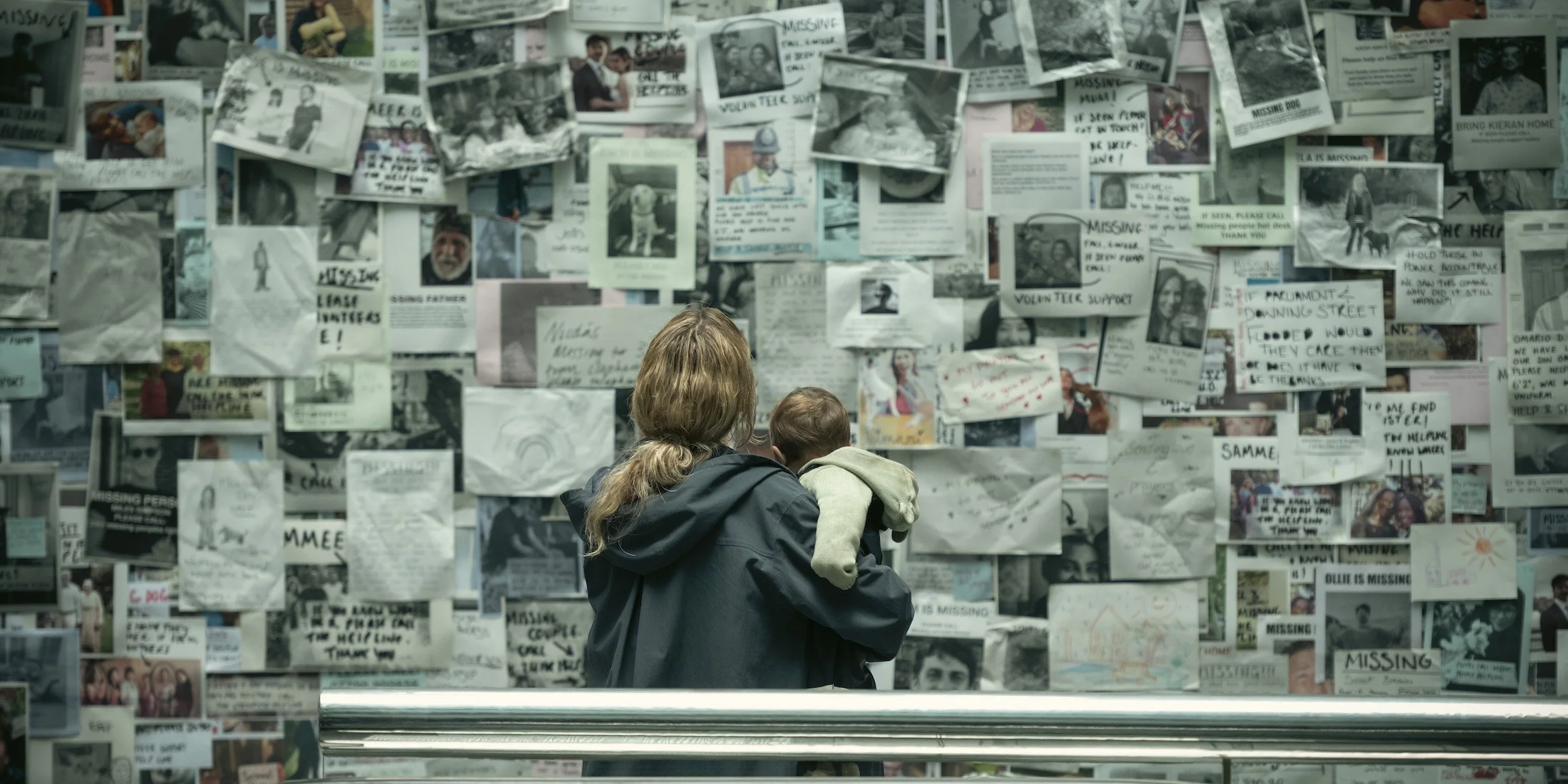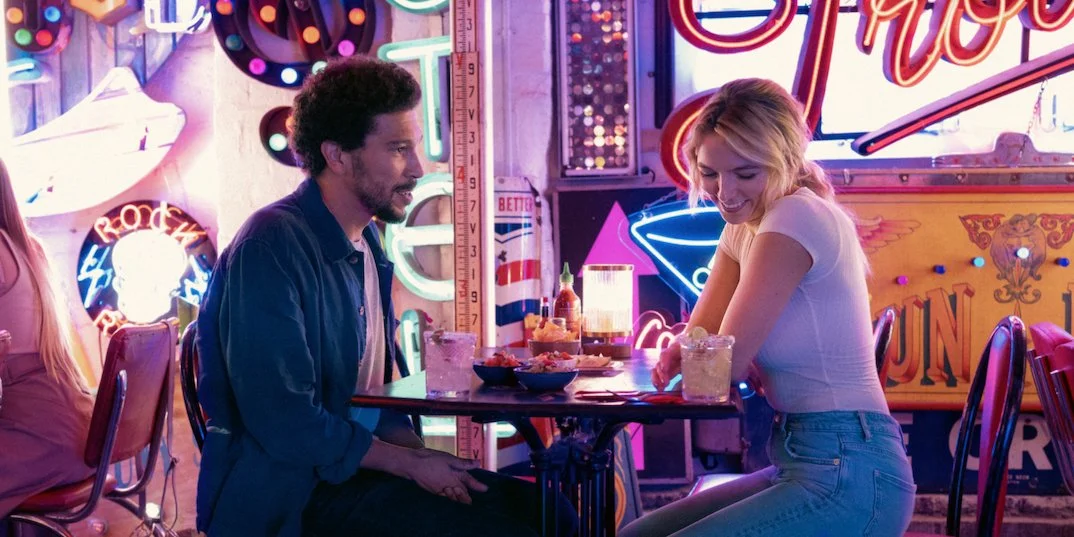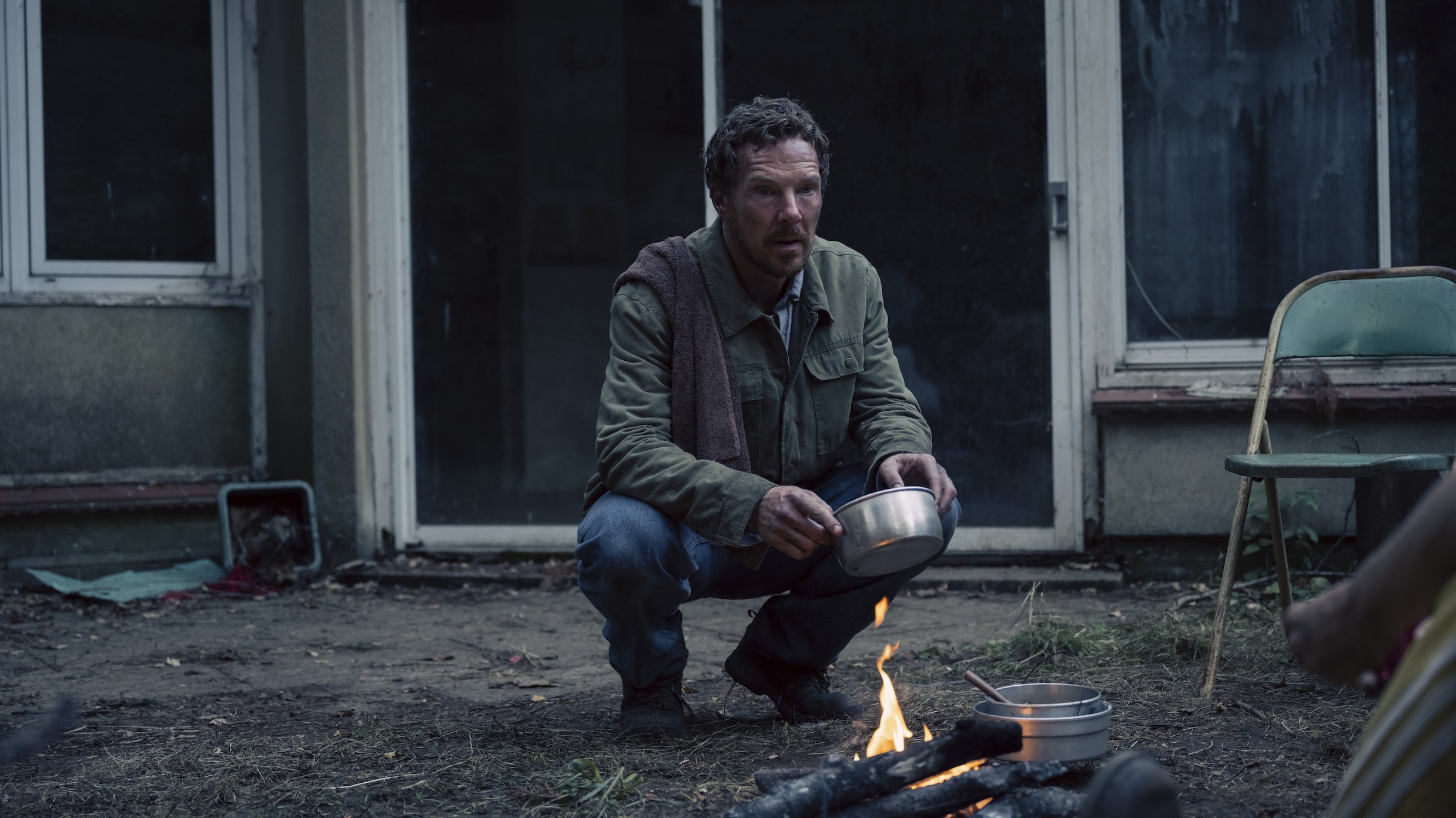A Gentle Apocalypse
If you take Roland Emmerich or The Rock out of a natural disaster movie, is it still a natural disaster movie? Yes. It is.
The End We Start Fr0m
Director: Mahalia Belo • Writer: Alice Birch, based on the book by Megan Hunter
Starring: Jodie Comer, Joel Fry, Katherine Waterson, Benedict Cumberbatch, Mark Strong
UK • 1hr 41mins
Opens Hong Kong February 22 • IIB
Grade: B
If you’re looking for an environmental apocalypse movie along the lines of the highly scientific The Day After Tomorrow or 2012 or San Andreas may I politely ask you to look elsewhere. First time feature director Mahalia Belo’s aggressively low-impact – as in, there are only a few guns, one time – unapologetically emotional survival para-thriller The End We Start From couldn’t feel farther from those towering cinematic achievements. The End is more Melancholia or Force Majeure than actioner, and you know what? It makes for a nice change of pace. Setting aside the conceit that any tragedy involving children and infants is somehow more tragic than others, and that 100% of women are single-mindedly maternal – let me assure you, they are not – The End’s laser focus on the little collapses and unexpected connections that spring up for a woman wandering the English countryside in the wake of a massive ecological catastrophe is a pleasant surprise, if not a particularly revolutionary one. Does the fact the director, writer, composer, production designer and producers are women make it inevitable the film wears its feelings on its sleeve, and aims for more grounded ruminations on post-apocalyptic humanity and the bond of motherhood? You decide.
In London, a heavily pregnant unnamed woman (Jodie Comer, The Last Duel, Free Guy) chats with her husband (Joel Fry, Our Flag Means Death, Cruella) by phone about what to have for dinner, has a bath, and murders a mango. Outside it’s raining. And raining. And raining. And raining. Then things go from bad to worse, when the power goes out, cell service fritzes out and the woman starts having contractions. Despite what I said earlier about babies, you’d have to be dead not to squirm at the scenes where the woman goes into labour – alone, in a storm, with her house flooding, and no imminent ambulance rescue. This is Pieces of a Woman and A Quiet Place all over again and it’s white knuckle tense.
But the woman does wind up in a hospital, her husband finds her, and with London under rising waters the new family heads to higher ground to stay with his parents (Mark Strong and Nina Sosanya). The disaster is hinted at rather than made into a set piece: farmhouse roof can be glimpsed, thunder constantly rumbles, roadblocks suggest fast-emerging battle lines. As the rain persists, everyone starts to get squirrelly, panic sets in and people start acting like people. In other words: like assholes. The woman gets separated from her husband when he’s denied space in a shelter, then spends the rest of the film trying to get home. Or what’s left of it.
Alice Birch (who reinterpreted David Cronenberg’s Dead Ringers for TV) adapted Megan Hunter’s book as a frankly sentimental road trip with all the feelings, during which the woman processes her trauma while caring for an infant that’s wholly reliant on her. If she goes hungry, he goes hungry, a constant source of stress in an already ultra-stressful situation. It would be treacly and toothache-inducing if Comer weren’t so accessible and capable as the woman. Birch and Belo explore the disaster’s impact through the various people the woman encounters, among them a generous man (Benedict Cumberbatch) who’s grieving his lost family, and her travelling companion, another new mom (Katherine Waterston) she meets in the shelter. Waterston steals the show with a gallows humour that barely masks her anxiety, and the rapid bond she forms with the woman is as believable as it is ultimately heartbreaking.
The End is a modest as it gets, and it’s painfully British in tone and bare bones storytelling. It’s a BBC Film film, and it wouldn’t be out of place on television. But Comer’s imperfect determination keeps you watching, and it keeps you hoping she’ll find her husband, regardless of the odds against it. It doesn’t quite cross the finish line, but The End We Start From’s willingness to shirk total bleakness at the very least earns it some respect as an apocalyptic outlier. — DEK



